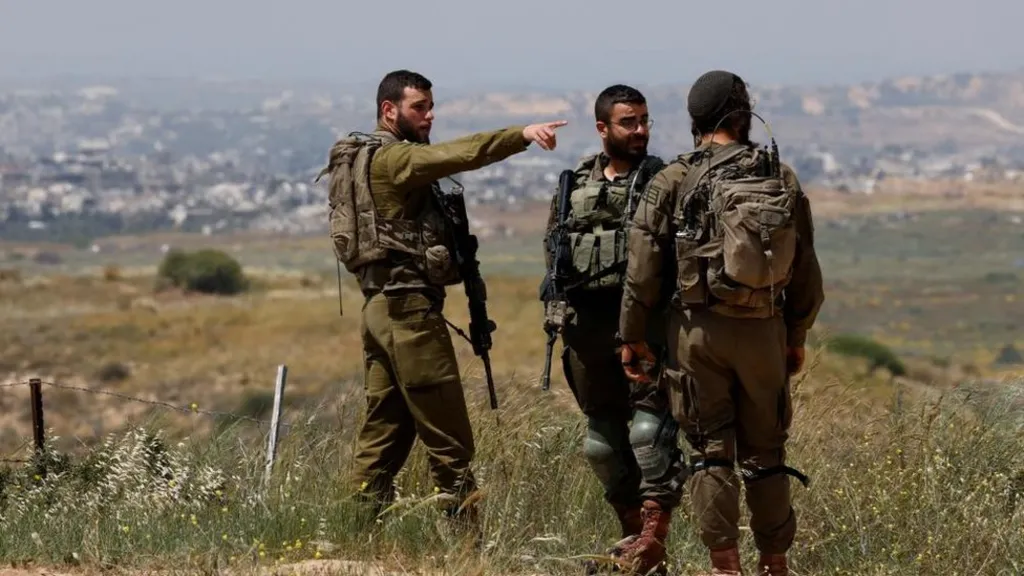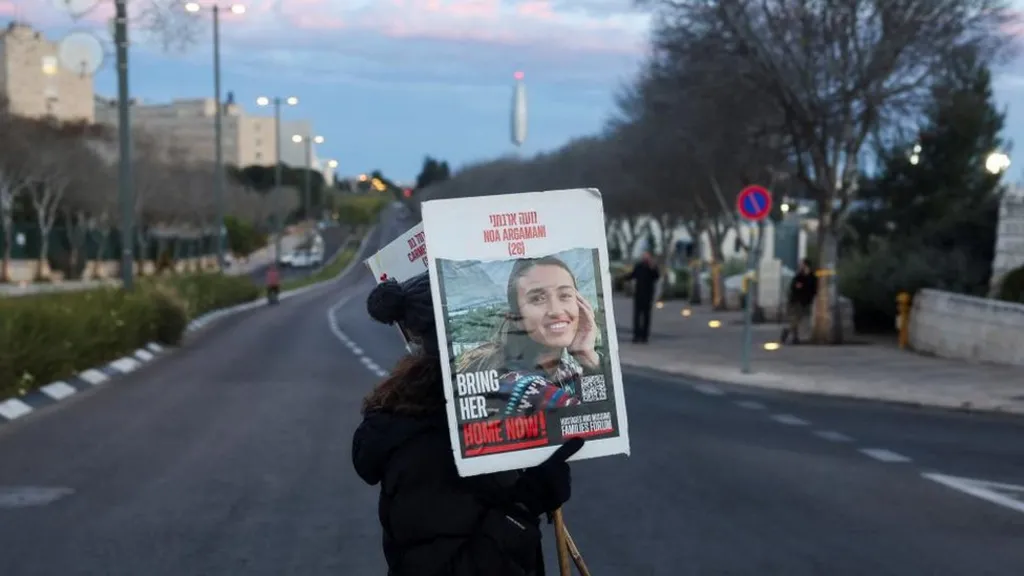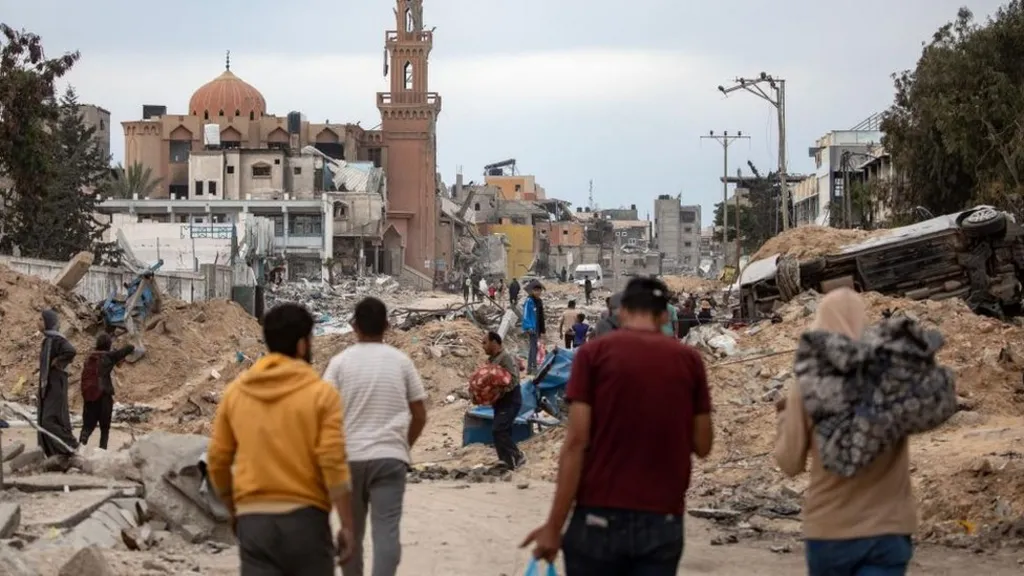There was never going to be an easy truce in Gaza between Israel and Hamas, the Palestinian organization. After weeks of negotiations, no deal has been reached. However, pressure from abroad is increasing.
The Biden administration’s decision to send CIA chief William Burns to Cairo for the most recent round of negotiations is arguably the biggest indication.
For the most part, Hamas has maintained to its original objectives, which included an unconditional return of displaced Palestinians to northern areas of the territory, an end to Israeli military activity, and a lasting truce.
Benjamin Netanyahu, the prime minister of Israel, is adamant that Israel will battle until Hamas is destroyed and the captives it is holding are set free.
“The United States is applying a great deal more pressure on Egypt, Qatar, and Israel to exert pressure on Hamas. That’s evident,” remarked Gershon Baskin, who was involved in the 2011 negotiations with Hamas to free Israeli soldier Gilad Shalit.
“That the head of the CIA showed up meant that all of the top negotiators had to be present. That is a sign of greater pressure from the United States.”That does not, however, imply that a deal is close.
Israeli leaders have expressed a willingness to make certain compromises in response to growing dissatisfaction among the nation’s principal allies, which includes the US. Yoav Gallant, the Israeli minister of defense, stated earlier this week that a truce was appropriate at this point.
In exchange for Palestinian detainees detained in Israeli jails, any agreement is expected to see the release of some of the hostages taken during the Hamas strikes. This was the basis for a truce that resulted in a brief ceasefire in hostilities in November. At least thirty of the 133 individuals who are still in captivity in Gaza have already been officially declared dead, according to Israeli authorities.

According to the most recent US proposal, during the first six weeks of the truce, Hamas would free 40 of its detainees who are still alive. Female prisoners, including soldiers, males over fifty, and those with severe medical issues, would be given precedence.
At least 700 Palestinians would then be freed by Israel; among them are roughly 100 people serving life sentences for killing Israelis, a crime that has generated controversy in Israel in the past.
However, it has been alleged that Hamas has informed negotiators that it does not actually possess 40 hostages in this category. This raises the possibility that a much larger number of hostages than previously believed have perished or that they may be in the hands of other armed groups, including Palestinian Islamic Jihad.
Mr. Netanyahu’s options for maneuvering are restricted in Israel due to pressure from various political and social groups. Even though the majority of Israelis still favor the war, there are increasing calls for him to accept a plan that would free the captives.
Large-scale demonstrations have been organized by the relatives, who accuse the prime minister of prioritizing his own political survival over the release of the hostages. Resignation calls for Mr. Netanyahu are also increasing.
Within Mr. Netanyahu’s ruling coalition, there are now further rifts due to far-right, ultranationalist partners who insist on continuing the battle against Hamas and refuse to make any concessions to them.
Minister of Finance Bezalel Smotrich informed the prime minister that the only way to free the hostages and dismantle Hamas was to apply more pressure to the organization. Meanwhile, Minister of National Security Itamar Ben Gvir openly threatened to remove Mr. Netanyahu from office if he did not carry out the much-promised offensive into the southern Gazan city of Rafah.
Entering Rafah is imperative, according to Israeli officials, as it is home to four operational brigades of Hamas and may be concealing the organization’s senior leaders.
However, almost everyone outside of Israel opposes an offensive on the city because to worries about the disastrous effects it may have on the 1.5 million Palestinians who are already seeking refuge in packed camps, makeshift shelters, and tents.
Without providing specifics, Mr. Netanyahu stated on Monday that a date had already been determined for a Rafah operation, possibly in an effort to allay internal critics.
“There’s a revolt going on right now in the government, and within [Mr Netanyahu’s party] Likud, against Netanyahu making any kind of deal that they don’t think should be made,” Baskin stated.
“Netanyahu does not operate freely. Within his own administration, he is a hostage.”
Although it hasn’t officially responded to the most recent offering, Hamas stated that, although it was open to a deal “that puts an end to the aggression on our people,” the offer fell short of its requirements.
The group issued a statement saying, “The Israeli position remains intransigent.”
The group’s reaction was deemed “less than encouraging” by the White House.

Yahya Sinwar, the leader of Hamas in Gaza, who is believed to be hiding in tunnels surrounded by guards and hostages, will likely make the final choice. However, it is reported that speaking with him is challenging, requires multiple middlemen, and takes days.
According to Mr. Baskin, the group was also demanding more control over the release of Palestinian detainees and a refusal to allow any of them to be deported, both of which might pose problems for negotiations.
-
Bowen: There are more barriers to peace than ever before.
-
How close is Israel to getting rid of Hamas after six months?
-
Why are Hamas and Israel at war in Gaza?
- https://youtu.be/Lmyh1EbeClw?si=4hCVObE_nlRBngfN
In addition, Hamas thinks that after the captives are freed, Israel will keep attacking the group unless there are assurances of an ongoing ceasefire.
Despite the tremendous and pressing demands of Gaza’s devastated civilian population, its leadership may feel that time is on their side to secure concessions because they have watched growing international criticism of Israel.
According to the Hamas-run health ministry, Israel’s response to the 1,200-person Hamas onslaught on October 7th resulted in a war in Gaza that has killed over 33,000 Palestinians, damaged a substantial portion of the territory, and left many more facing starvation.
“Based on my experience with similar issues, the primary challenges are whether or not the primary decision-maker on both sides is prepared for a compromise. That’s unclear,” stated Mr. Baskin.
“It’s unclear whether Netanyahu and Yahya Sinwar, the political leader of Hamas in Gaza, are prepared for a deal. But they’ll find a middle ground when they get there.”
Unsurprisingly, a spokesman for Hamas seized upon Mr. Netanyahu’s remarks regarding the timetable of an attack on Rafah, claiming it begged the question of why negotiations should resume.

